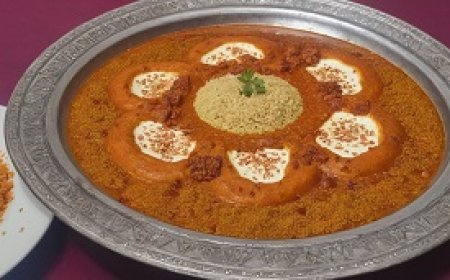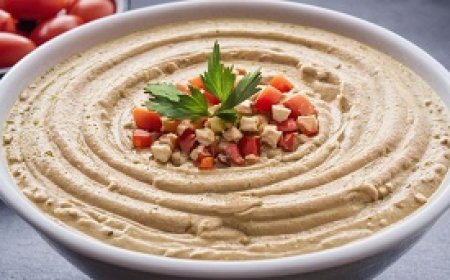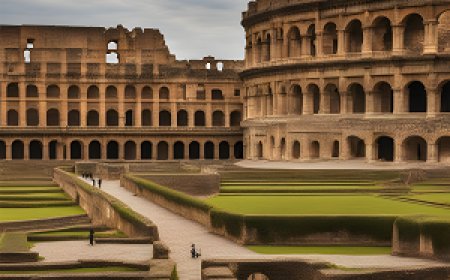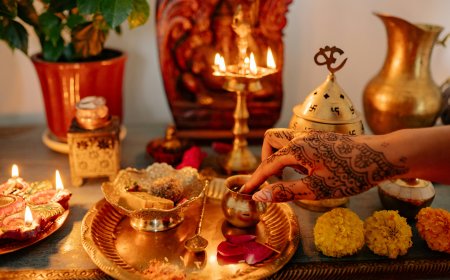The religious rituals in Hinduism
Hindu rituals represent a diverse collection of spiritual rites and traditional practices that manifest in various aspects of Indian life. These rituals are an integral part of Hindu culture and vary from place to place based on local traditions and beliefs. The scope of these rituals ranges from daily prayers and religious observances to major celebrations such as Diwali and Holi. Hindu rituals include offerings, worship in temples, and bathing in sacred rivers. These rituals are central to the daily lives of Indians, blending customs and traditions with religious beliefs to form an inseparable essence of Hinduism.
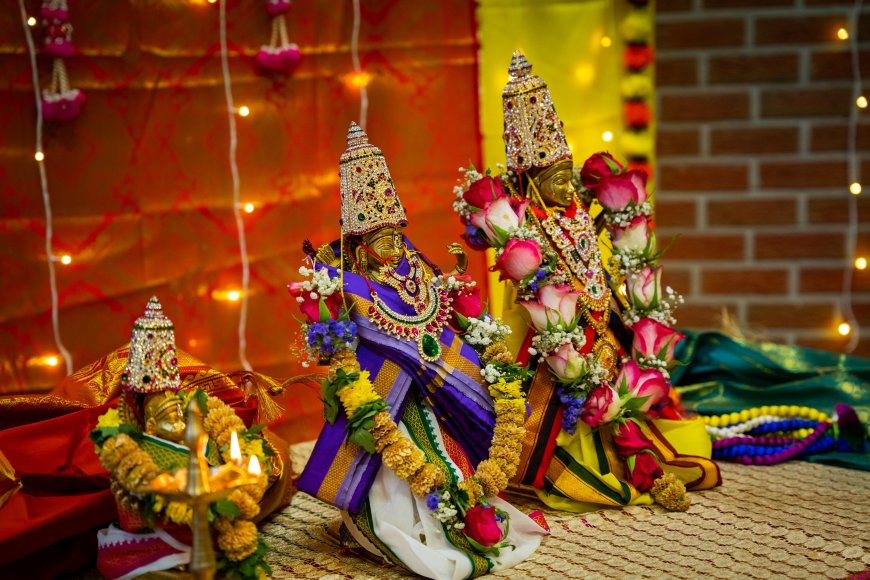
Hindu rituals represent a diverse collection of spiritual rites and traditional practices that manifest in various aspects of Indian life. These rituals are an integral part of Hindu culture and vary from place to place based on local traditions and beliefs. The scope of these rituals ranges from daily prayers and religious observances to major celebrations such as Diwali and Holi. Hindu rituals include offerings, worship in temples, and bathing in sacred rivers. These rituals are central to the daily lives of Indians, blending customs and traditions with religious beliefs to form an inseparable essence of Hinduism.
The religious rituals in Hinduism
The spiritual and cultural practices in Hindu rituals encompass a wide range of elements, spanning from daily prayers to major religious celebrations. These practices begin with daily prayers, where believers perform worship and prayers either in temples or in their homes. Hindus enjoy significant flexibility in prayer, as individuals can choose the time and method they prefer to connect with the divine.
Cultural practices in Hindu rituals include numerous celebrations and festivals that reflect their heritage and religious values. Among these celebrations are Diwali, Holi, Navaratri, and others. The rituals accompanying these celebrations involve various activities such as communal prayers, charitable acts, gift-giving, and feasting.
Additionally, spiritual practices in Hinduism include various religious acts such as preaching, baptism, and religious readings. Hindus also believe in performing charitable deeds, making donations, and offering sacrifices as a means of drawing closer to God and contributing to community service.
In this detail, it becomes evident that the spiritual and cultural practices in Hindu rituals are integral parts of the lives of Indians, reflecting their religious values and deep-rooted culture.
The origins and evolution of religious rituals
The origins and evolution of religious rituals in Hindu rituals constitute an essential aspect of the history and development of Hinduism over the ages. The origins of these rituals can be traced back to ancient times and sacred religious texts such as the Vedas, Upanishads, Mahabharata, and Ramayana.
Initially, religious rituals revolved around worship and reverence for various gods and goddesses in temples and shrines. These rituals focused on prayers, offerings, and rites related to faith and piety.
Over time, rituals evolved to include a wide range of religious celebrations and festivals blending religious and cultural elements. Such evolution serves as an indication of the mutual influence between religion and culture in Hinduism.
Furthermore, religious rituals have witnessed historical and social changes influenced by various philosophical and religious doctrines that emerged and evolved over time. For example, rituals were influenced by philosophies such as Vedanta and Shaivism and the defense of Hinduism against external influences.
Thus, it becomes evident that the origins and evolution of religious rituals in Hinduism reflect a rich history of experiences and mutual influences between religion, culture, and social developments throughout the ages.
The spiritual significance of Hindu rituals in daily life
The spiritual significance of Hindu rituals in the daily lives of Hindu believers is deeply manifested in their profound influence on multiple aspects of their spiritual and practical life. The regular performance of religious rituals is considered an essential part of their worship and their connection with the divine and the spiritual world.
One of the most important spiritual aspects of Hindu rituals is the enhancement of individual religious and spiritual awareness. Through daily prayers and participation in religious rituals, the Hindu believer finds themselves connecting with the divine and expressing their belonging to the religious community. These spiritual rituals enhance the sense of inner peace and spiritual balance, thus aiding in achieving inner peace and happiness.
Furthermore, Hindu rituals provide individuals with guidance and direction in their daily lives. They impart religious teachings and ethical values that guide their behavior and decisions. For example, learning patience, tolerance, and compassion through religious rituals helps believers to develop their personal and social relationships and achieve balance in their lives.
Moreover, Hindu rituals play a vital role in fostering belonging and social interaction. Many religious celebrations and events are held collectively, bringing individuals together and fostering social bonds and solidarity among them.
In this way, spiritual Hindu rituals reflect significant importance in the daily lives of Indians, providing them with the necessary guidance and spiritual support to achieve inner peace, happiness, and balance in their lives.
Religious celebrations in Hinduism
Religious celebrations in Hinduism constitute an integral part of Hindu culture and traditions, reflecting the diversity of beliefs and cultural richness in India. These celebrations range from daily rituals to special religious occasions, embodying the spirituality and faith of the Indian people.
Daily celebrations in Hinduism include religious prayers in temples and homes, where believers perform religious rituals, recite Hindu scriptures, and engage in devotional singing. These daily prayers and rituals are crucial for enhancing individual spirituality and fostering believers' connection with the divine.
As for special religious occasions, Hinduism encompasses numerous renowned celebrations characterized by joy, happiness, and social solidarity. Among these celebrations, Diwali (the Festival of Lights) stands out as one of the most significant in Hinduism, symbolizing the renewal of life, light, and happiness. During Diwali, people exchange gifts, indulge in sweets, light candles, and fireworks.
In addition to Diwali, there are several other religious celebrations in Hinduism, such as Holi (the Festival of Colors), where people spray colored powders and water on each other, and Ganesh Chaturthi (Ganesh Festival), which commemorates the birth of the deity Ganesh and is marked by unique activities like the portrayal of the deity in colorful statues and the offering of flowers.
These religious celebrations in Hinduism serve as opportunities for social cohesion and strengthening familial and community ties. They also provide a platform for demonstrating loyalty and devotion to the divine, renewing spirituality, and reaffirming faith in divine forces.
Worship centers and spiritual recitation
Worship centers and spiritual recitation in Hinduism serve as gathering points for believers to perform religious rituals and devoutly engage in worship. These centers vary greatly, including large and small temples, shrines, and sacred places in nature.
Temples are among the most important worship centers in Hinduism, where believers gather to perform religious rituals, prayers, and offer sacrifices to the deities. Temples are characterized by their magnificent artistic designs and traditional Hindu architecture, including facilities such as purification tanks, corridors for strolling, and areas designated for prayers and meditation.
In addition to temples, shrines and graves are other places for worship and spiritual devotion. Shrines provide a tranquil environment for prayer and meditation, often characterized by an atmosphere of serenity and spirituality. Graves serve as places to visit saints and offer prayers for their souls.
These centers serve as places to enhance individual spirituality and connect believers with God and the deities. Additionally, these places serve as centers for religious education and spiritual knowledge exchange, where believers can attend religious lectures and philosophical discussions to deepen their understanding of Hindu rituals and traditions.
Sacrifices in Hindu rituals
Sacrifices in Hindu rituals represent an essential part of religious worship and traditions, as believers express their devotion and appreciation to the deities through offering gifts and sacrifices. Sacrifices include a variety of sacred items such as food, flowers, financial wealth, and even animals.
In Hinduism, sacrifices are offered in temples and homes during religious rituals and special celebrations. Sacrifices are carefully chosen according to religious traditions and the needs of various rituals. For example, fruits and sweets may be offered as sacrifices in daily prayers, while animals such as cows or goats may be offered as sacrifices in major religious festivals.
The act of offering sacrifices is seen as an expression of faith and sacrifice, as believers believe that offering gifts to the deities brings blessings, protection, and happiness. Additionally, sacrifices are also seen as a means for humans to communicate with the deities and enhance the spiritual relationship between them.
The offering of sacrifices in Hindu rituals reflects respect and reverence for divine and spiritual forces, and strengthens the bonds between believers and the religious world they attend and participate in.
Spirituality shapes identity
Spirituality shaping identity in Hindu rituals reflects the spiritual depth and cultural cohesion that distinguishes Hindu believers. This spirituality is manifested in a range of rituals and practices extending from daily prayers to major religious celebrations.
In daily rituals, the performance of prayers and religious rites in temples and homes is one of the most prominent aspects of spirituality shaping identity. This involves believers' dedication to worship and their spiritual orientation towards deities and saints. Daily prayers and religious rites continue to reinforce Hindu identity and solidify spiritual values among individuals.
On the other hand, spirituality shaping identity is evident in major religious celebrations such as Diwali, Holi, Navratri, and others. These celebrations express the heritage and culture of Hindus, bringing communities together to celebrate festivals and religious occasions, thereby enhancing the sense of belonging and adherence to Hindu identity.
Furthermore, spirituality influences the shaping of Hindu identity through beliefs and religious values that are integral parts of daily life. Values such as cooperation, generosity, tolerance, and acceptance are essential in shaping the spiritual identity of Hindus and in representing their cultural and religious values.
Dedication to religious rituals and practices, participation in religious celebrations, and embodiment of Hindu spiritual values are fundamental elements in shaping the spiritual and cultural identity of Hindus.
Summary
Religious rituals in Hinduism constitute an essential part of Hindu culture, forming a diverse array of spiritual rites and traditional practices. These rituals vary from daily prayers to major religious celebrations such as Diwali and Holi, reflecting values of worship, devotion, sacrifice, and tolerance that are at the core of Hinduism. Worship centers and temples are significant places for performing rituals and fostering both individual and collective spirituality. Overall, Hindu rituals reflect the cultural and spiritual diversity of Hindus and constitute an integral part of their daily lives and religious identity.
Sources
1. Hinduism A Comprehensive Guide by David Caldwell
2. Rituals and Practices in Hinduism from Britannica
3. Hinduism for Beginners A Comprehensive Guide by Shimone Williams
What's Your Reaction?



























